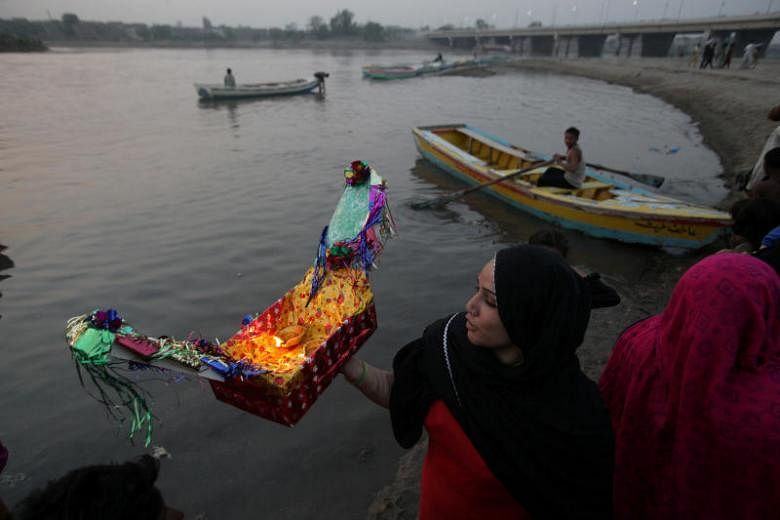NEW DELHI (BLOOMBERG) - India and Pakistan will discuss the resolution of a dispute over sharing river waters this week, officials said, setting off the first official negotiations between South Asia's nuclear-armed rivals since newly-elected prime minister Imran Khan took charge.
Both sides will discuss the issue over two days starting Aug 29 in Lahore, Indian and Pakistani officials said, asking not to be identified as they are not authorised to speak to the media.
The two nations will try to resolve differences over the construction of two dams by India on the Chenab, one of the six rivers shared by the two countries, and exchange river basin data, one of the officials said.
India and Pakistan have been in a constant state of tension since the partition of British India in 1947. Indian officials have previously said they would be open to peace talks if Pakistan would stop supporting militant groups that strike inside Indian territory. Pakistan denies supporting terrorists.
Six rivers - Ravi, Beas, Sutlej, Indus, Chenab and Jhelum - have been a potential point of conflict between the neighbours despite a water sharing treaty signed in 1960.
India had in 2016 said it would review the treaty after 19 Indian soldiers were killed in disputed Kashmir region that is claimed by both sides. Pakistan has repeatedly raised issue with India's plans to build dams on rivers. Yet annual talks have remained relatively unaffected in spite of two wars fought since the treaty was put in place.
Mr Khan in his victory speech last month said Pakistan and India should resume peace talks. The last formal peace process started after India's Prime Minister Narendra Modi made a surprise visit to former Pakistani premier Nawaz Sharif in Lahore in December 2015 but were called off after a series of terror attacks on Indian military bases.
"It's a good subject to start building a relationship with the new Pakistan government," said Dr Uttam Sinha, senior researcher at New Delhi-based Institute for Defence Studies and Analyses.
"Water is an emotive issue for both sides and this is a unique treaty especially in this part of the world."
In this week's talks, India will defend its plans to develop hydropower projects on the western rivers Indus, Chenab and Jhelum, over which Pakistan has more rights under the 1960 agreement, the Indian official said. The Indus Waters Treaty has allotted the waters of three eastern rivers - Ravi, Beas and Sutlej - exclusively to India and the western rivers to Pakistan.
Both nations need to resolve the ongoing differences that could affect more than 30 million people on the Indian side and hurt Pakistan's farm sector, which employs half the nation's workforce. Pakistan's rice and cotton production have been affected in a few southern areas as there was not enough water supply.
Calls to Mr Sudhir Kumar Pandey, spokesman at India's water ministry, went unanswered. Pakistan's Ministry of Water Resources Joint Secretary Syed Mehr Ali Shah could not be reached for a comment.
"Pakistan is most likely to raise concerns regarding dams being constructed by India on rivers which may affect flow into Pakistan," said Prof Rashid Ahmed Khan, who is head of politics and international relations department at University of Central Punjab, Lahore.

